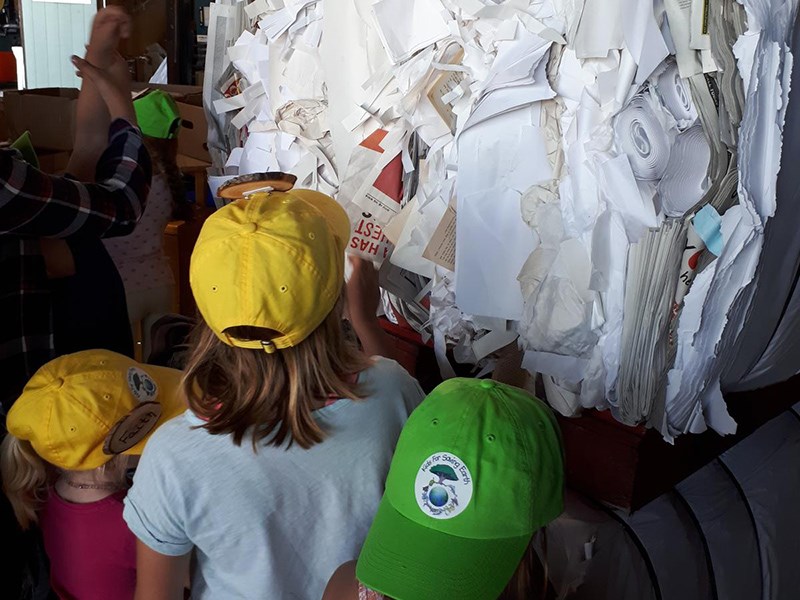If it sounds too good to be true, it probably is. Remember when you first heard the paper recycling stream was okay managing bits of plastic?
How relieved were you to hear you didn’t have to remove those pesky windows from envelopes or pie boxes? And that eco choice to buy coffee or chips in the plastic-lined paper bag felt pretty good, too.
Things in the world of recycling changed January 1 and it is affecting recycling bins. Plastic in the paper stream has gone the way of the dodo bird, and here’s why.
While most recyclables collected through our main program, Recycle BC, are processed within North America, our paper goes abroad. In the past few years, Asia and China in particular, have begun turning away entire barges of recyclables.
Why? Contamination.
Excessively dirty and cross-contaminated loads of recycling, possibly better defined as garbage, have led China to raise what is being called its national sword. Now, loads of paper (and other recyclables) are screened and many are being turned away.
Only 0.5 per cent contamination is allowed for the fibre stream, a tough standard to meet in the age of confusing packaging and consumer desire for convenience. With 55 per cent of the world’s scrap paper being processed in China, this is having a global impact. Bales of contaminated fibre are being stockpiled with no clear final destination in sight.
The truth is plastic was never welcomed in the paper recycling stream. It was always sifted out during the recycling process and sent to the waste stream for us. Now, we will simply have to do this ourselves. It is a small change in habit, with a potentially big impact downstream.
Now it’s up to us to take that extra moment to check paper before we toss it. Remove elastic bands, staples, paper clips and most importantly, plastic windows. Plastic-lined paper is also no longer accepted. Even if it’s labelled compostable plastic or plant-based, it’s considered contamination in the paper stream.
Maybe it’s also time to reassess paper in your life in general. In the case of recycling, a full bin is not necessarily something to write home about. Once collected, there is still transportation, processing and energy involved in transforming recycling back into something of value.
Let’s Talk Trash is Powell River Regional District’s waste-reduction education program. Contact them at [email protected].



